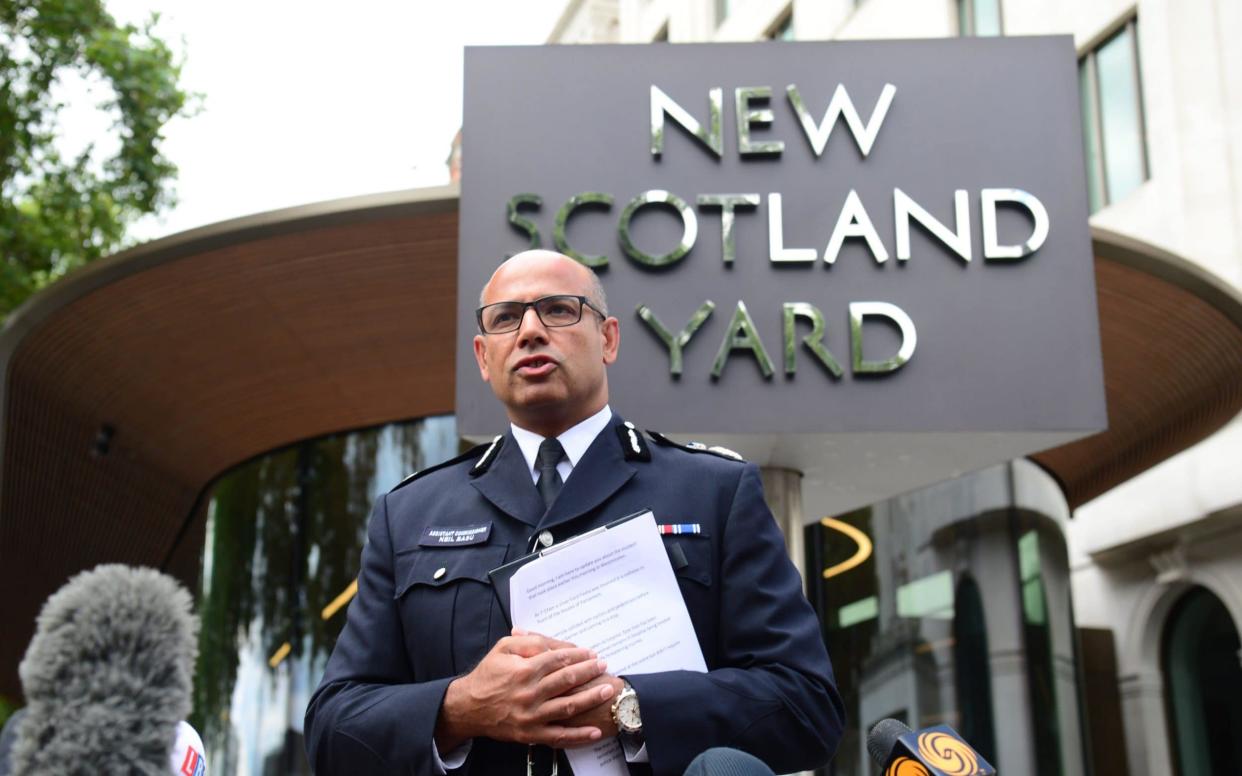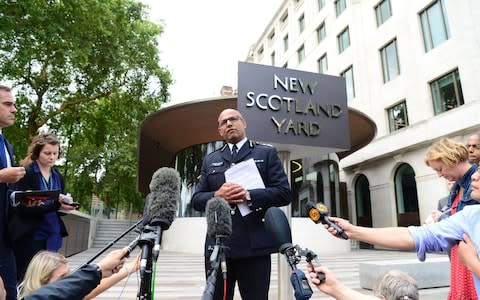Profile: Assistant Commissioner Neil Basu, the man who quietly rose to become Britain's anti-terror chief

During his 26-year career, Assistant Commissioner Neil Basu, has quietly risen through the ranks at Scotland Yard, from a beat bobby on the streets of Battersea, to the head of counter-terrorism, charged with keeping the country safe from attack.
Despite being in charge of some of the Metropolitan Police’s most significant cases in recent years, the 50-year-old has managed to maintain a relatively low profile and avoid any major controversy - until perhaps now.
Unlike many senior Scotland Yard figures he has not sought to use the press and media to boost his career, only rarely giving interviews.
In 2011 he was in charge of Operation Weeting - the phone hacking investigation - and he also led Operation Elveden - the follow up probe into allegations of corruption in the media.
While Operation Weeting resulted in the jailing of Andy Coulson, the former News of the World editor and David Cameron's official spokesman, Operation Elveden was more controversial.
The £15 million probe resulted in the arrests of scores of journalists, but of the 34 who were tried, not a single one was successfully convicted and the fallout from the investigation soured relations between Fleet Street and Scotland Yard.

The son of a doctor from Calcutta and a nurse from Wales, Mr Basu enjoyed a comfortable middle class upbringing in Stafford.
But as a mixed race child growing up in the 1970s, he was often the target of racism, something that he admitted helped inform his approach to policing.
After graduating from Nottingham University with a degree in economics, he landed his first job on a management training scheme with Barclays Bank.
He also spent a spell as a salesman for the Mars confectionery company, but despite his father's hope that he would become a lawyer or a banker, he was determined to pursue a career in the police.
His father had worked as a police surgeon for almost 40-years, so it was a world he was familiar with.
After joining the Met aged 24 in 1992 he spent four years on the beat in Battersea before being promoted to Sergeant in the tough Brixton area.
He transferred to the CID as a sergeant in 1997 and two years later made the rank of inspector.
Earmarked for fast track promotion, Mr Basu spent three years tackling Met corruption as part of the professional standards unit.
In 2003 he was promoted to Detective Chief Inspector, working as a senior investigating officer in the homicide unit for three years.
Promotion to Detective Superintendent, with responsibility for serious and organised crime, followed, before he was appointed staff officer to Sir Paul Stephenson - the Commissioner of the Metropolitan Police.
Further promotion followed and he was elevated to Borough Commander fist in charge of Brent and then later south London.
Between 2013 and 2014 Mr Basu was the commander in charge of armed policing, but has never trained as a firearms officer himself.

In fact in an interview published earlier this year he said he had never wanted to carry a gun.
“Strangely enough, had policing been a fully armed profession in this country, I would never have become a police officer," he explained.
After running armed policing in capital, Mr Basu took on responsibility for organised crime and gangs, before being appointed Deputy Assistant Commissioner in 2015.
He worked closely with Sir Mark Rowley, the previous head of counter terrorism, at a time when London was the UK was subjected to five terror attacks in the space of just a few months.
When Sir Mark retired in March last year, Mr Basu, took on the role that many regard as the toughest job in British policing.
One of his first jobs was to deal with the response to the Novichok poisonings in Salisbury and his team successfully identified the two Russian suspects believed to be responsible.
He works closely with Andrew Parker, the head of MI5, and as well as being in charge of counter terrorism policing for the whole of the UK, also has responsibilty for a range of other subjects, including Official Secrets Act offences, the investigation of war crimes, the protection of VIPs, royals, embassies, parliament and aviation policing.
With three teenage sons, he lists his hobbies as film, sport and motorcycling.

 Yahoo News
Yahoo News 
